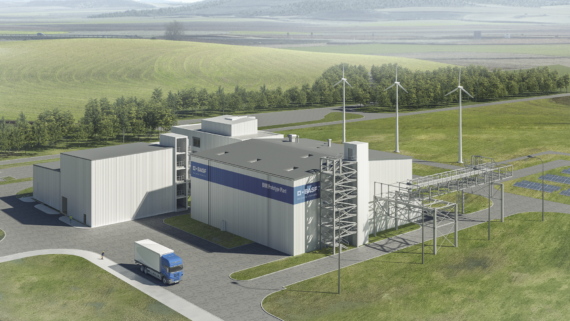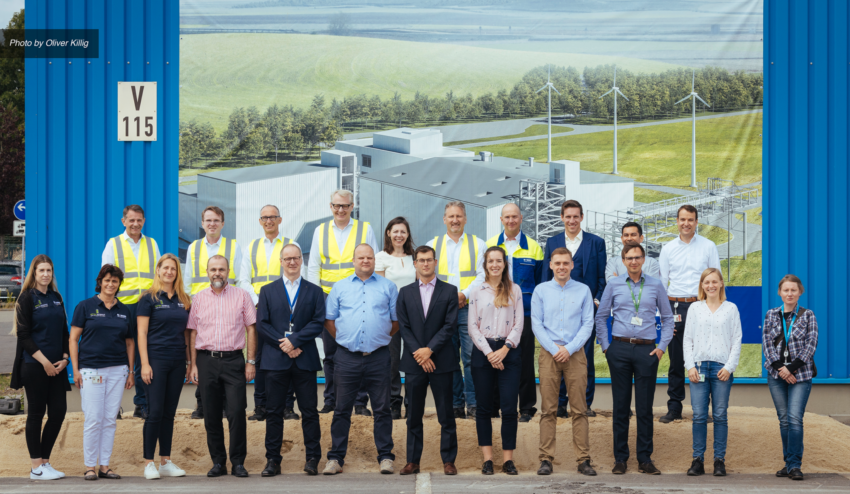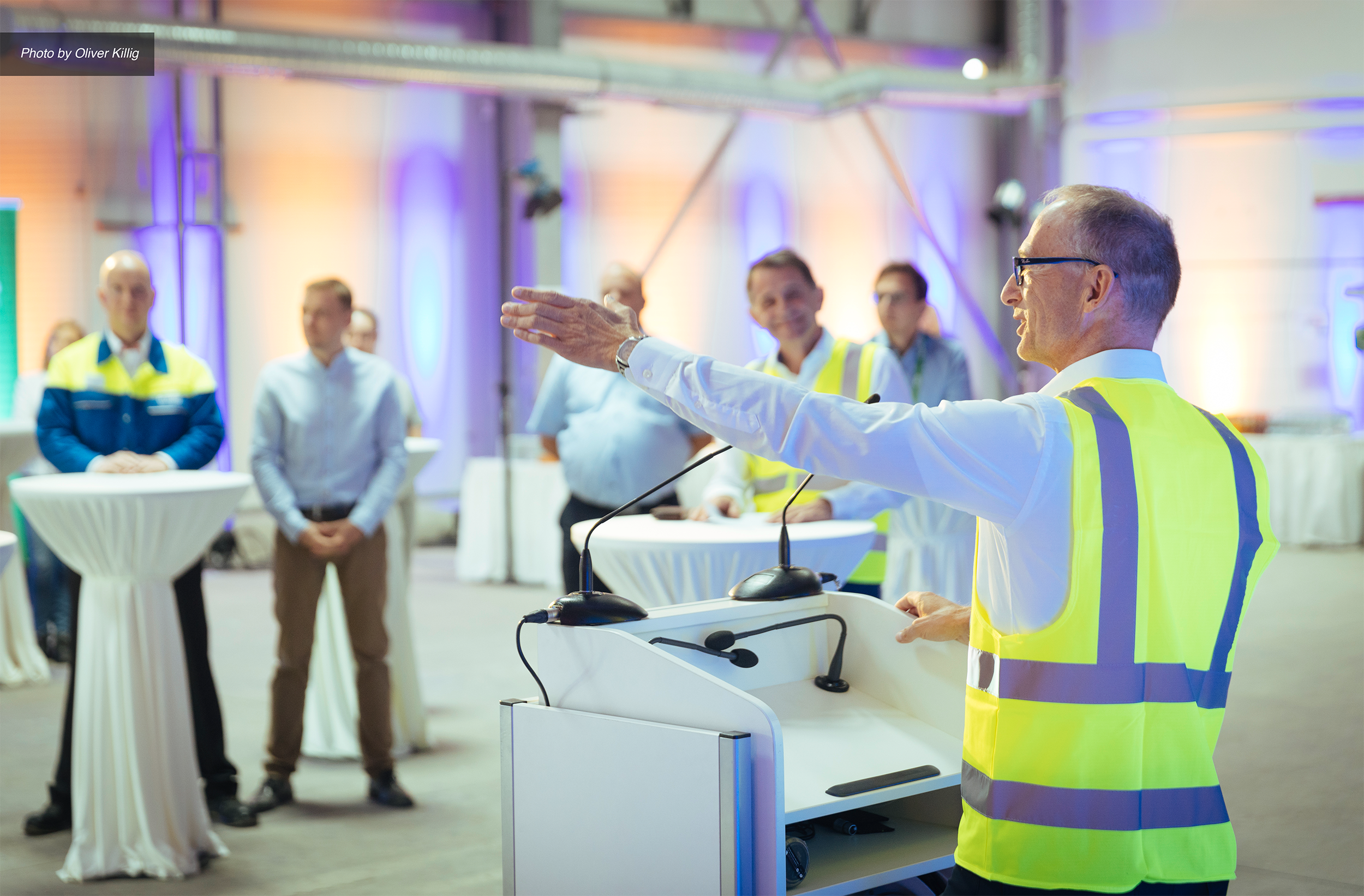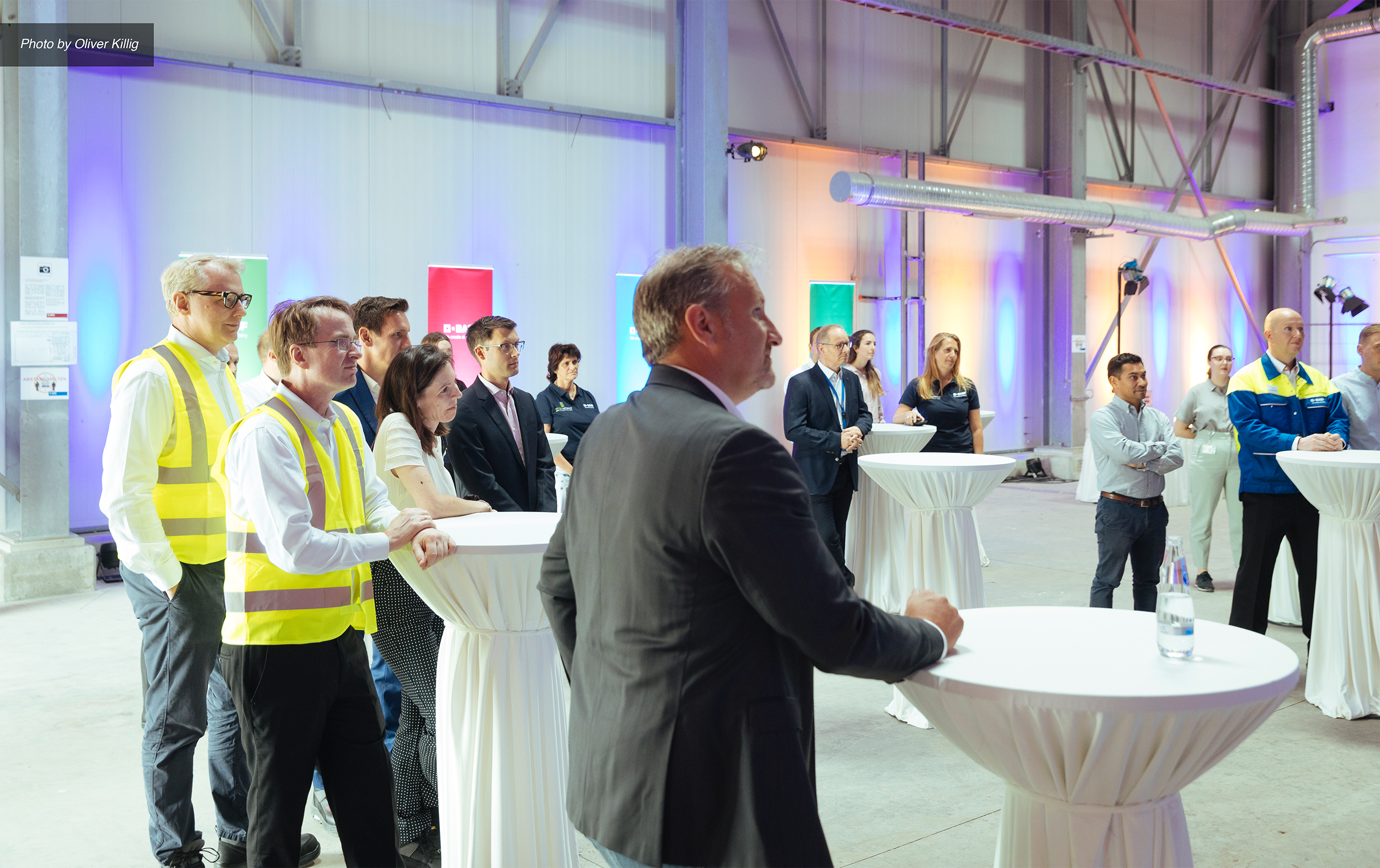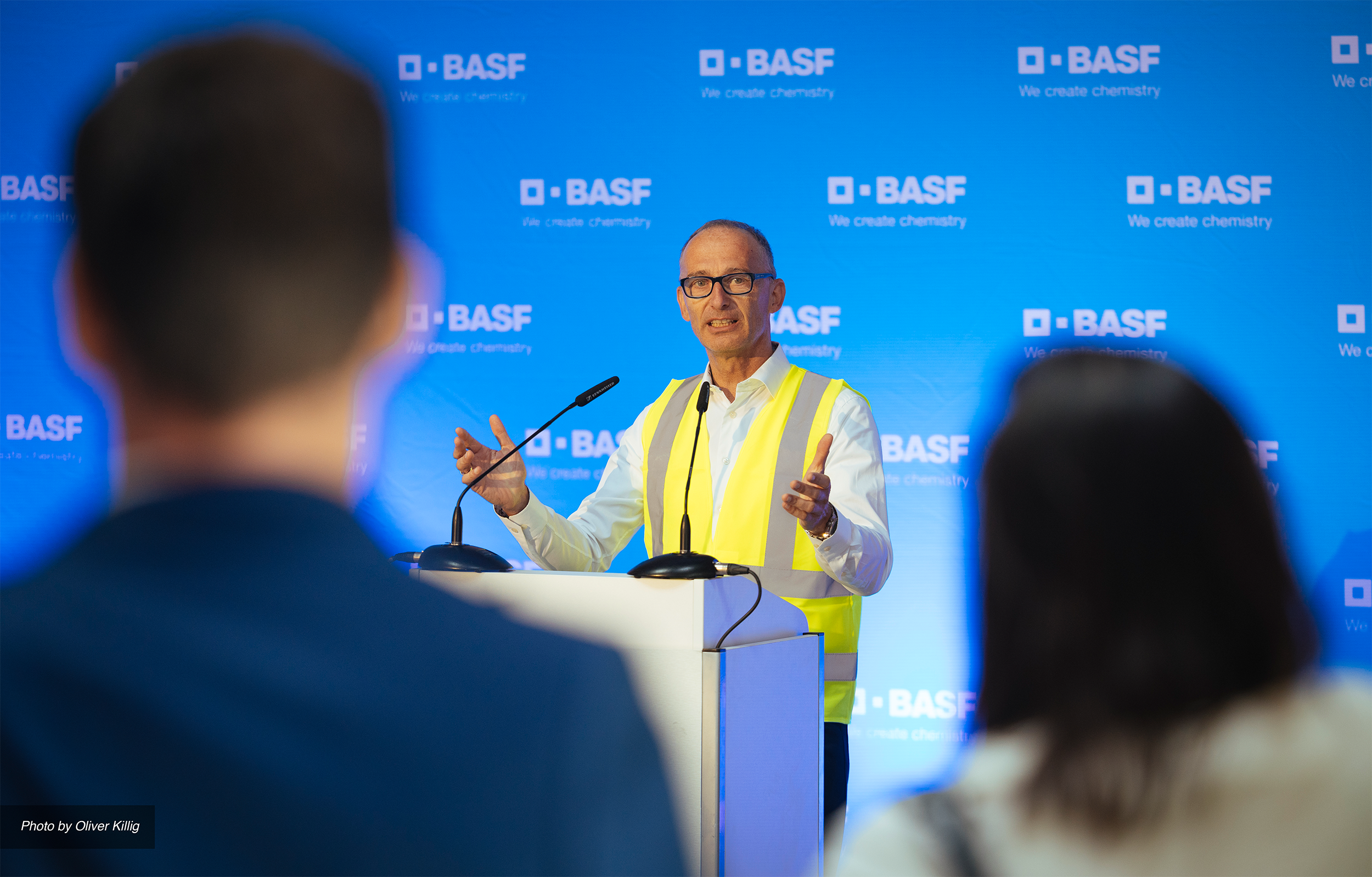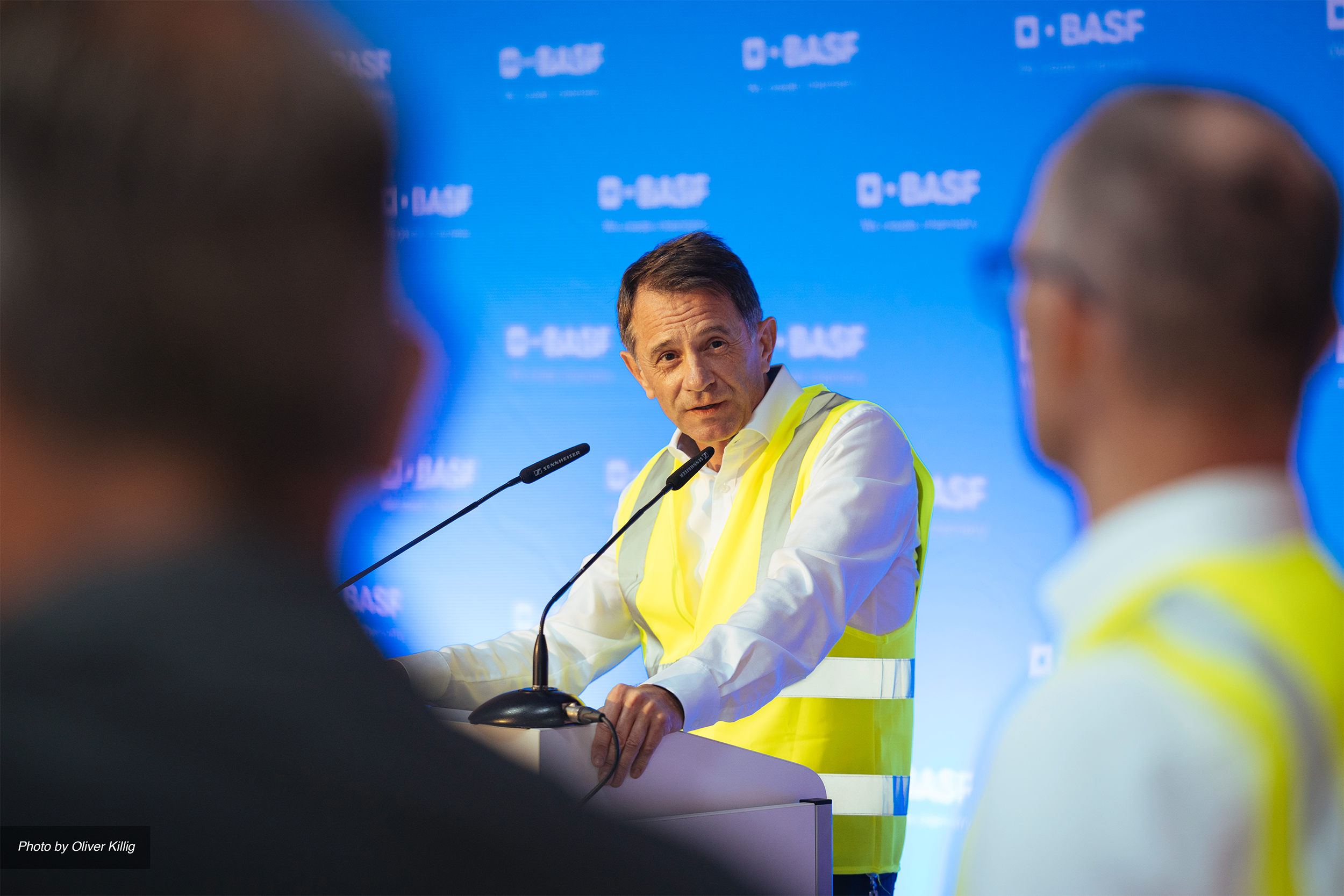Summary:
- Start-up is targeted in 2023
- Strengthens BASF’s cathode active materials (CAM) production and recycling hub in Schwarzheide
- Technology from prototype plant will be used in expected commercial scale battery recycling plant
This section is available in the following languages: English
Prototype design for battery recycling plant in Schwarzheide, Germany
BASF has broken ground for its battery recycling prototype plant in Schwarzheide, Germany. In an internal event, the company celebrated this milestone together with the Battery Materials and Recycling leadership team and the project team responsible for the new plant. The plant is part of BASF’s multi-step investment plan to further grow its presence in the European battery recycling market. Construction is planned to start in August and start-up is scheduled in 2023. This investment will create about 35 new jobs at the Schwarzheide site.
Leveraging its broad expertise in recycling and its market access, BASF currently already offers battery recycling services in China and in Europe. This plant is the next step in further growing our recycling footprint. With the prototype plant, Schwarzheide becomes an important research center for hydrometallurgy at BASF. Together with our research colleagues in Ludwigshafen, it will enable the fast and effective scale-up of the battery recycling technology for a closed-loop battery material value chain. We expect to build a commercial scale battery recycling plant based on the technology developed, tested and refined in the prototype plant by mid of this decade.”
The prototype recycling plant will allow for the development of operational procedures and optimization of hydrometallurgy technology to deliver superior returns of lithium, nickel, cobalt and manganese from end-of-life lithium-ion batteries as well as off spec material from cell producers and battery material producers. The extracted metals will be used to produce CAM and will enable a circular economy for the battery value chain, significantly improving the CAM product carbon footprint.
The plant will use a hydrometallurgical process that leaches and separates the valuable metals. This will provide lower CO2 emissions than traditional pyromet or combined pyro/hydromet processes that rely on heat.
BASF’s Schwarzheide production site is located in Germany in the federal state of Brandenburg. The investment reinforces BASF’s support of the European Commission’s agenda towards a European battery production value chain and is part of the “Important Project of Common European Interest (IPCEI)” approved by the European Commission on December 9, 2019, under the European Union State aid rules. The launch of innovative battery materials from the Schwarzheide plant and research to develop next-generation battery materials and process development, including battery recycling, is co-funded by the Federal Ministry for Economic Affairs and Climate Action on the basis of a resolution of the German Bundestag and by the Ministry of Economics, Labor and Energy of the State of Brandenburg on the basis of a resolution of the Brandenburg State Parliament as part of the IPCEI for Batteries: Funding codes 16BZF101A/B.
Photos by Oliver Killig
